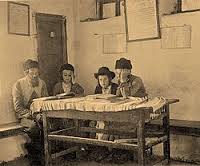The Necessity and Limits of Thinking for Oneself
DOI:
https://doi.org/10.13135/2038-6788/9190Keywords:
Democracy, Education, Emmanuel Levinas, Hannah Arendt, Humanities, Humanity, John Dewey, Jewish Education, Martha Nussbaum, Public SphereAbstract
The status of Emmanuel Levinas’s essays on Judaism with regard to his larger philosophical work has long been at issue. Central to those essays is a set of writings on Jewish education that Levinas penned while the Director of the ENIO—from 1946 into the early 1980’s. In these essays, Levinas argues not only for the new ethical subjectivity that he describes in works like Totality and Infinity, but also confides in his readers how this subject is to be cultivated: through a robust Jewish education. The primary question, then, that guides this essay: “Why does Levinas turn specifically to Jewish education?,” an education that includes the Jewish sacred texts? Is it not the case, in light of certain beliefs about the humanities exerting a humanizing influence that a humanities education can accomplish the task of cultivating humanity in the way that Levinas hopes? This essay begins with a general discussion of the “crisis” in the humanities and then turns to Levinas’s views on education, Judaism, and assimilation in order to situate these views within his larger philosophical work.


